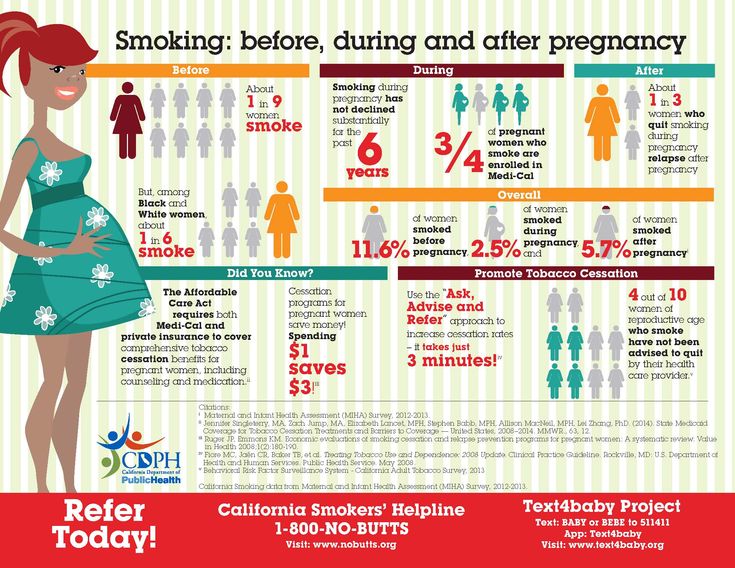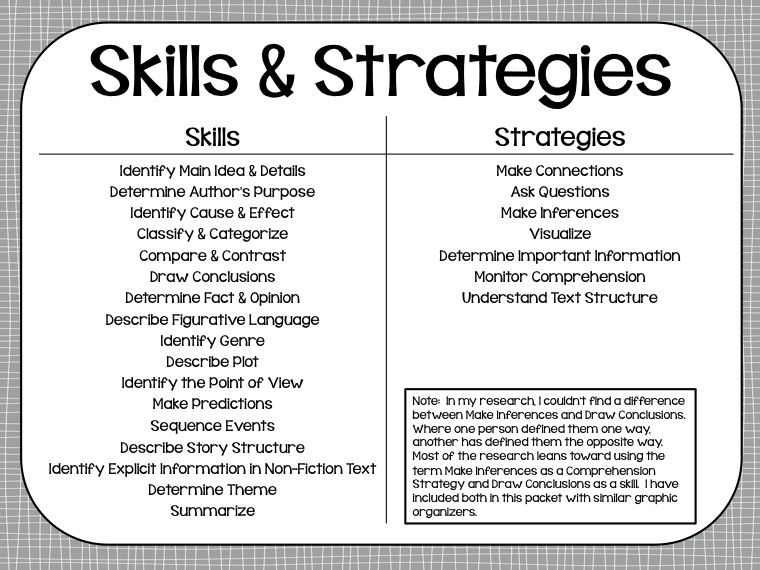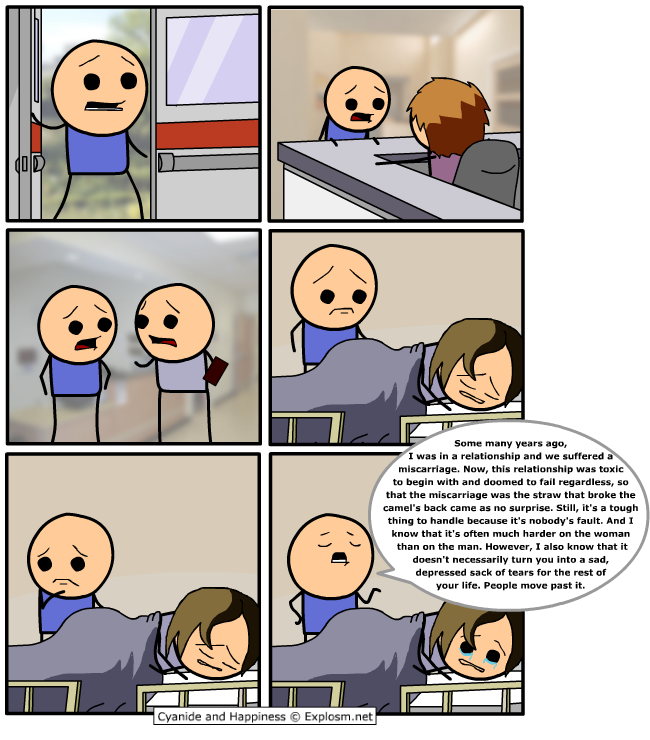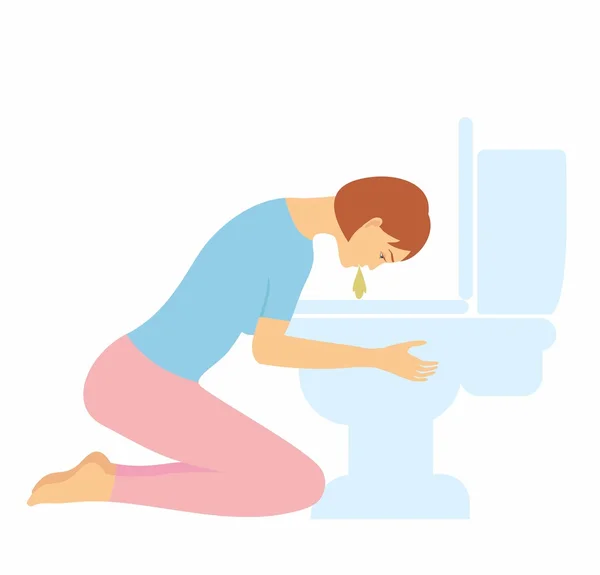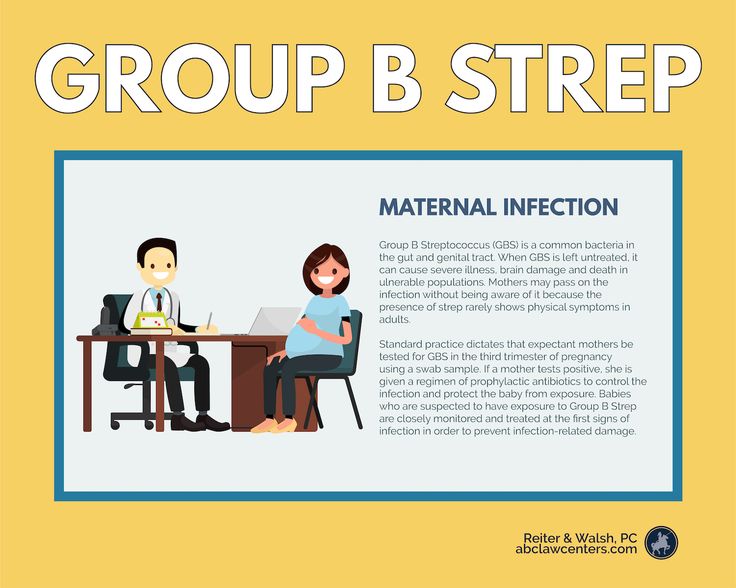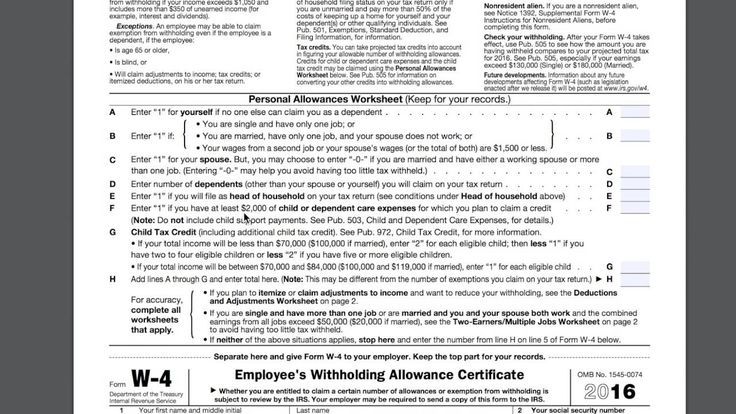Afternoon morning sickness
All You Need to Know About Morning Sickness
Do you know 50% of women face morning sickness in their first trimester or initial 12-14 weeks of pregnancy? So, you are not alone if you are also feeling this way in the early days of your pregnancy.
Morning sickness, commonly known as ‘nausea’ or in severe cases ‘hyperemesis gravidarum’, is one of the first symptoms of pregnancy, which you may face in the initial weeks. There are three trimesters in your pregnancy, and the first seems to be the one where these symptoms peak.
But don’t lose heart by thinking about the morning sickness you’re facing because it usually eases off after 14 weeks. Most pregnant women tend to feel normal once the second trimester begins.
Loss of Appetite and Heartburn
During pregnancy, your digestion becomes slower, and your abdominal muscles become relaxed,which can cause your food to come back up your esophagus. This is a common symptom that many pregnant women experience. You can experience these symptoms at a certain stage of your pregnancy but some women are unlucky enough to experience it the whole way through their pregnancies.
Nausea
Morning sickness is actually not always felt in the morning time. It hits many women around mid afternoon and is usually made worse by fatigue. The hormone human chorionic gonadotropin (hCG), is usually the hormone that is accountable for this unpleasant queasy feeling.
Heat in Hurry
During pregnancy, your body goes through various changes. Your blood volume increases slowly but surely and you may feel symptoms due to this happening. This increased volume of blood causes your heart to beat faster, putting pressure on your whole circulatory system and you may feel breathless at times or even experience hot flashes..
Dark and Cloudy Urine
Passing more colored than opaque urine is also a symptom of morning sickness during pregnancy. The reason for this darker urine is dehydration, which could be from excessive vomiting, which is why it’s so important to stay hydrated throughout your pregnancy.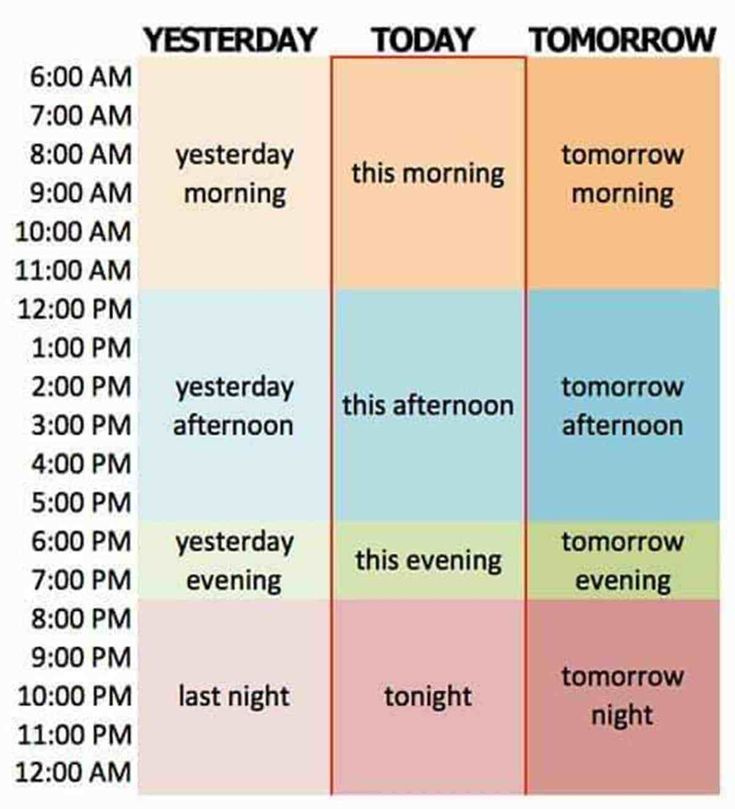
Agonizing Anxiety
One out of ten women face anxiety issues during the first trimester. Anxiety is common during pregnancy, but it can be frustrating if you’re a person who has never felt anxious before. Or if you are prone to anxiety, you may find these symptoms a little worse than usual. Your body is going through a tremendous amount of hormonal and chemical changes. Be kind to yourself and take one day at a time.
Increased hCG (Human Chorionic Gonadotropin)
One of the significant causes of morning sickness is the hCG hormone, which increases during the first trimester. Because of this hormone, one faces morning sickness, usually in the morning, or at any stage of the day, really!
Rise in Progesterone Level
Progesterone is another hormone that may be accountable for morning sickness. Although progesterone may cause you morning sickness, this is a good thing. Increased progesterone levels help the lining of the uterus to thicken, which enables the process of implantation. Also, it prevents early childbirth by relaxing the muscles of the uterus..
Also, it prevents early childbirth by relaxing the muscles of the uterus..
Rise in Estrogen Level
During the first 12-14 weeks, the estrogen level is at its peak, which causes symptoms like nausea and vomiting. Estrogen is essential too as it helps to enlarge breasts, preparing your milk ducts for breastfeeding. Estrogen is vital in maintaining a healthy pregnancy.
Now, you’re aware of the symptoms and the causes of morning sickness; it’s time for you to know some easy and effective ways to tackle this. Here are some ideas which you can try on your own to avoid the troublesome morning sickness.
Rest, rest, rest
Your early pregnancy symptoms will be much worse if you are pushing yourself too hard and not getting enough rest. If you feel tired, allow yourself to take a nap (if possible) or try to get to bed at a reasonable time at night so that you have a decent long stretch of sleep overnight.
Stay Hydrated!
Keeping well-hydrated helps your body prevents nausea. Hydrating yourself by drinking water or fresh juices is the best way to do this. Ensure you are drinking a minimum of 2.5 litres each day. This will not only help with the nausea but also help in terms of keeping your body running smoothly.
Hydrating yourself by drinking water or fresh juices is the best way to do this. Ensure you are drinking a minimum of 2.5 litres each day. This will not only help with the nausea but also help in terms of keeping your body running smoothly.
Eat Less & Keep It Healthy
Having light and frequent healthy meals can also ease your problem of nausea. Because of the slow and steady digestion in pregnancy, it becomes harder to digest heavy meals at once. It’s advised that you eat light meals that are rich in vitamins and nutrients that your body can easily digest.
Avoiding Odors
Always try to be around fresh and pleasant aromas during pregnancy – outdoors in nature is a good option! All thanks to increased estrogen levels, our nose becomes sensitive to smells. Bad smells can make you feel nauseous and avoid the fish isle in the supermarket and opt for fresh air instead!
Ginger is your Best Friend
Constipation and nausea are both very common in pregnancy Some women experience diarrhea too.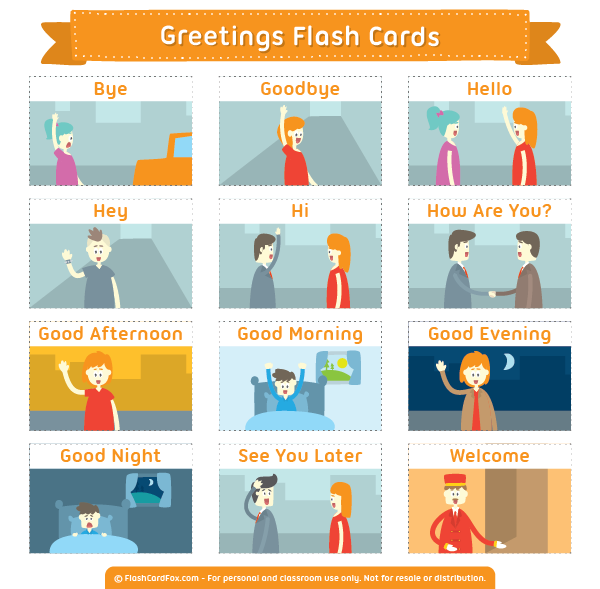 Ginger can help your distressed stomach. Chewing ginger or sipping on ginger tea can be very helpful.
Ginger can help your distressed stomach. Chewing ginger or sipping on ginger tea can be very helpful.
Morning sickness and the other associated symptoms mentioned above are very common. Try some of the natural remedies that we have suggested. If you are finding that your symptoms are really affecting you severely, do talk to your midwife or GP, especially if you feel that you may be dehydrated or severely anxious.
Can You Get Morning Sickness at Night? – Cleveland Clinic
Morning sickness. It’s a frequent symptom of pregnancy, and perhaps the most curiously named. So-called “morning” sickness is a feeling of nausea and/or vomiting during pregnancy. Despite its name, morning sickness can strike any time of day or night. It’s a common symptom of early pregnancy, affecting up to 90% of people who are pregnant, says gynecologist Selena Zanotti, MD.
Is morning sickness only in the morning?Unfortunately, feelings of nausea and bouts of vomiting during your pregnancy may not disappear when the clock strikes noon.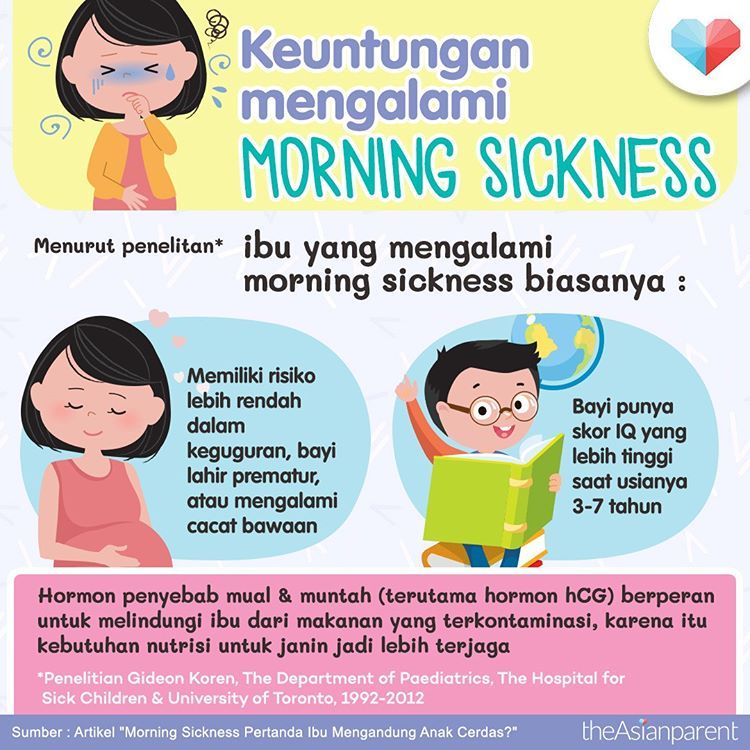 Queasiness, nausea and vomiting can happen throughout the day and night during your pregnancy.
Queasiness, nausea and vomiting can happen throughout the day and night during your pregnancy.
“Morning sickness is a misnomer,” Dr. Zanotti says. “It is most common in the morning when women wake up and haven’t eaten anything, but it can occur at any point during the day and throughout the evening and night.”
Morning sickness is most likely to happen during your first trimester (roughly 14 weeks) of pregnancy, though it can last into your second trimester, and beyond. The time of day, frequency and intensity of morning sickness will vary from person to person and can change throughout your pregnancy.
Causes of sickness in the evening or nighttimeThe reason you may experience morning sickness at night, or during the day, may be related to changes in hormones that happen during pregnancy.
“Estrogen and progesterone increase in pregnancy and may affect the way foods and drinks move through your body. Also, hCG (human chorionic gonadotropin, the hormone responsible for that positive pregnancy test) is at its peak in the first trimester, which is when you are most likely to experience pregnancy nausea and/or vomiting,” Dr. Zanotti explains.
Zanotti explains.
Morning sickness may also have a genetic layer. If your birth parent or sibling experienced morning sickness in their pregnancies, you may have a higher likelihood of pregnancy nausea. It’s also common among people with a history of migraines, mood disorders or motion sickness.
Some studies suggest morning sickness may have protected our hunting-and-gathering ancestors. Feelings of nausea may have guarded early humans and their developing embryos by causing pregnant people to avoid potentially dangerous foods, like poisonous berries or spoiled meat.
Advertising Policy
During your pregnancy, morning sickness may be triggered by:
- Feeling hungry or thirsty.
- Eating, especially spicy or greasy foods.
- Smelling strong or offensive smells, like perfumes or certain foods.
- Lying down.
- Prenatal vitamins.
Some people say morning sickness at night is an early indication of your baby’s biological sex, but Dr. Zanotti says the science on this is shaky.
Zanotti says the science on this is shaky.
“Some small studies have shown a higher incidence of female fetuses being associated with morning sickness, but no large studies have been done to assess this or determine a reason why it would occur,” she notes.
What helps morning sickness at night?To curb morning sickness at night, Dr. Zanotti suggests:
Eat what works for youHeavy, spicy and greasy foods frequently set off nausea in people who are pregnant. Pay attention to how your body reacts to certain foods, and stick to the foods that work for you. Eat small meals regularly, and keep on hand some easy-on-the-stomach snacks, like crackers or nuts. Having healthy snacks next to your bed can make it easy to reach for a little something to quell pregnancy nausea at night and when you first wake up.
The BRAT diet (bananas, rice, apples and toast) is easy on your stomach and can help you find some relief from morning sickness during the night or day. Sour foods and sour candies can do the trick, too. Try sucking on a slice of citrus — like lemon, lime or orange — when morning sickness takes over. Ginger is another popular way to find relief from morning sickness. You may find that ginger supplements, ginger tea, ginger candy or sucking on ginger root can help.
Sour foods and sour candies can do the trick, too. Try sucking on a slice of citrus — like lemon, lime or orange — when morning sickness takes over. Ginger is another popular way to find relief from morning sickness. You may find that ginger supplements, ginger tea, ginger candy or sucking on ginger root can help.
Lying flat, especially after eating, can cause the juices in your stomach to rise and leave you feeling queasy. To fight morning sickness at night, try propping up your top half (head to chest) with some extra pillows to keep inclined while you rest.
Advertising Policy
Change up when you take your vitaminsPrenatal vitamins are important during your pregnancy. They ensure your body is getting the nutrients it needs to keep you and your baby healthy.
But you may find that your vitamins contribute to pregnancy nausea, too. If you’re taking your prenatal vitamins before bed, try taking them in the morning to fight off morning sickness at night, and vice versa.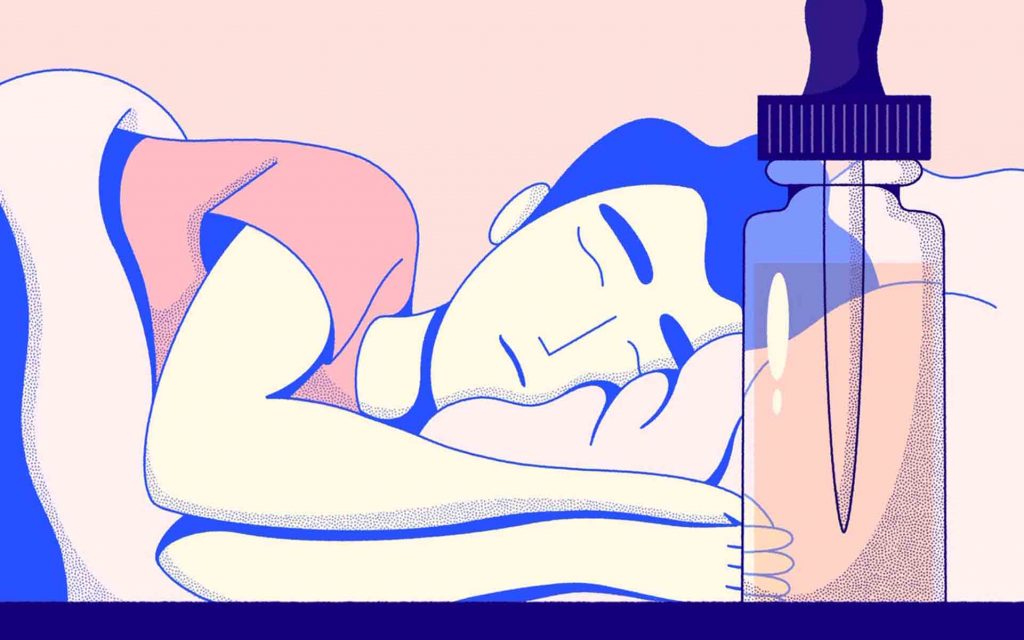 Taking your vitamins with a small, healthy snack can help to curb feelings of pregnancy sickness, as well. It’s important, though, that you don’t stop taking prenatal vitamins or change vitamins without talking with your doctor.
Taking your vitamins with a small, healthy snack can help to curb feelings of pregnancy sickness, as well. It’s important, though, that you don’t stop taking prenatal vitamins or change vitamins without talking with your doctor.
The good news for you? Morning sickness — or night sickness, or even morning-noon-and-night sickness, as the case may be — likely isn’t dangerous for you or your developing baby, Dr. Zanotti reassures.
However, an estimated 1% to 3% of pregnancies experience hyperemesis gravidarum — next-level nausea and vomiting that can make it hard to carry on with normal life. If you have these symptoms, talk with your doctor:
- You frequently vomit multiple times a day and can’t seem to keep anything down.
- You experience weight loss during your pregnancy (5% of your body weight or more).
- Your nausea and vomiting are frequent and persistent, even after trying the suggestions above.
“Severe morning sickness can cause dehydration,” Dr.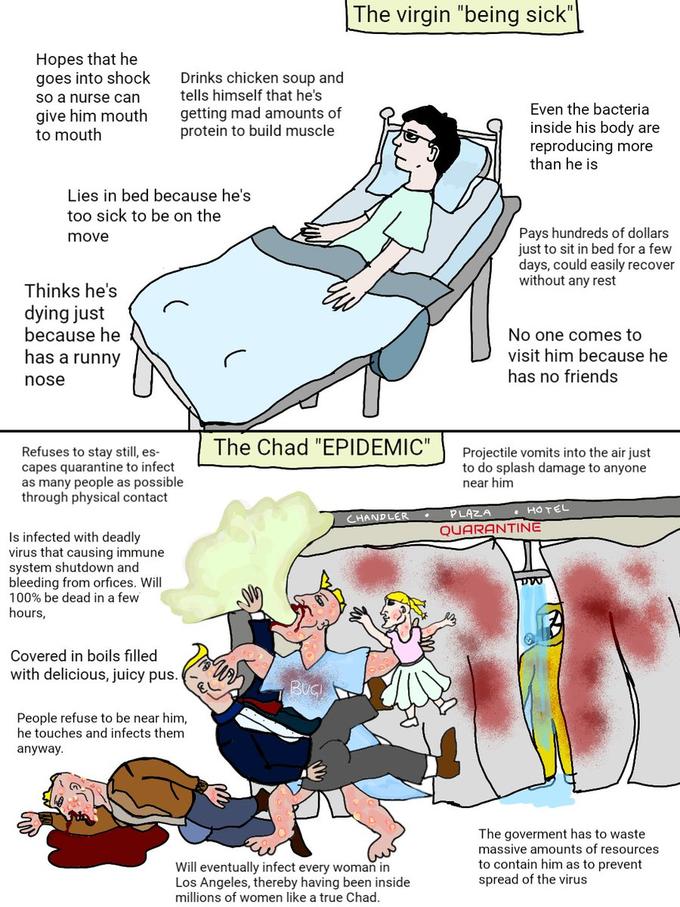 Zanotti says. “If morning sickness is leading to weakness or dizziness, you may need intravenous fluids. If you can’t keep any food down or are experiencing significant weight loss, talk with your healthcare provider. There are medications that can help.”
Zanotti says. “If morning sickness is leading to weakness or dizziness, you may need intravenous fluids. If you can’t keep any food down or are experiencing significant weight loss, talk with your healthcare provider. There are medications that can help.”
While morning sickness can, unfortunately, come with the job of growing new life, there are steps you can take to make yourself more comfortable. Talk with your doctor about your symptoms if home remedies aren’t doing the trick, and rest assured that while morning sickness isn’t confined to the a.m., it’ll likely ease up in your second trimester.
Neurologist: chronic lack of sleep is detrimental to the human psyche
Lack of sleep, stress, night work and sleepless nights lead to severe depression, destroy the human psyche and worsen his well-being. The secrets of good sleep in an interview with RIA Novosti special correspondent Tatyana Stepanova on the eve of World Sleep Day were shared by Professor of the Department of Nervous Diseases of the First Moscow State Medical University.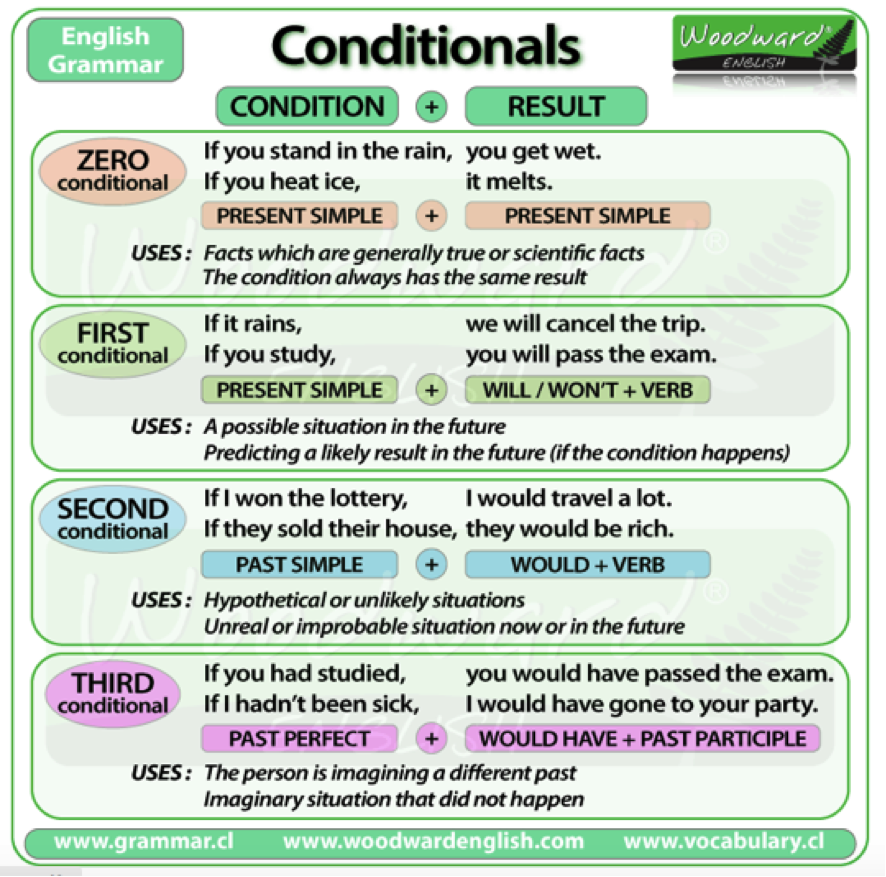 Sechenov, head of the project "Ecology of the brain", neurologist Alexei Danilov. nine0004
Sechenov, head of the project "Ecology of the brain", neurologist Alexei Danilov. nine0004
- Alexey Borisovich, today we increasingly neglect normal sleep due to the modern rhythm of life. How can this affect human health?
— Healthy sleep is a component of longevity, beauty and health. Without proper rest, we quickly get tired and are not able to work at full strength. Nevertheless, the problem of sleep disorders is becoming more and more urgent all over the world today. Stress, information flow and high-speed communications force us to live according to the schedule, which often conflicts with our internal biological clock. As a result, a person feels constant fatigue and disorientation in time. And long-term violations can lead to a deterioration in the condition of internal organs and tissues, for example, cardiovascular diseases. nine0005
Lack of sleep is also a risk factor for infectious diseases and chronic fatigue syndrome.
Many people who work the night shift often develop infectious diseases, which are obviously caused by disturbances in biological rhythms. In addition, people who work at night often develop "office syndrome" and even diabetes.
In addition, people who work at night often develop "office syndrome" and even diabetes.
- What does it mean that "office syndrome" is developing? What factors influence this?
- This is a complex of symptoms that manifest as depression, chronic fatigue, pain in the neck, back, headache, obesity and other physical and psychological negative symptoms. The cause of the "office syndrome" is hypodynamia, constant sitting in an uncomfortable position in front of the monitor screen, malnutrition, tensions in the team and some other factors. nine0005
As I said, lack of sleep increases the risk of developing diabetes.
In Russia today, several million people work on the night shift, many of them for years. Doctors, nurses, medical staff, who are often on duty at night, as well as security guards, police officers, telecom operators and others, are at particular risk of developing diabetes.
- How many hours a day does a person need to sleep?
— According to WHO, an adult needs six to eight hours of sleep a day. Reducing the amount of sleep accelerates the aging mechanisms in the body. Already after a day without sleep, chemical processes begin in the brain, leading to mental disorders. After two days without sleep, the hormonal background changes and neural connections in the cerebral cortex are disrupted. And after three or more days without sleep, brain cells begin to break down, the load on internal organs increases, primarily on the heart. It is known that sleep deprivation is the most severe torture for a person, because there is a rapid destruction of the body and psyche. nine0005
Reducing the amount of sleep accelerates the aging mechanisms in the body. Already after a day without sleep, chemical processes begin in the brain, leading to mental disorders. After two days without sleep, the hormonal background changes and neural connections in the cerebral cortex are disrupted. And after three or more days without sleep, brain cells begin to break down, the load on internal organs increases, primarily on the heart. It is known that sleep deprivation is the most severe torture for a person, because there is a rapid destruction of the body and psyche. nine0005
The modern rhythm of life has led to the fact that over the past hundred years the duration of sleep has decreased by 20 percent! After all, the constant stress inherent in the inhabitants of megacities leads to a violation of biological rhythms and sleep patterns.
The anti-stress properties of sleep are now scientifically confirmed. During sleep, the body progressively “sheds” negative memories. The level of the stress hormone in the blood during this period of time is minimal, which allows the brain to process all experiences and problems.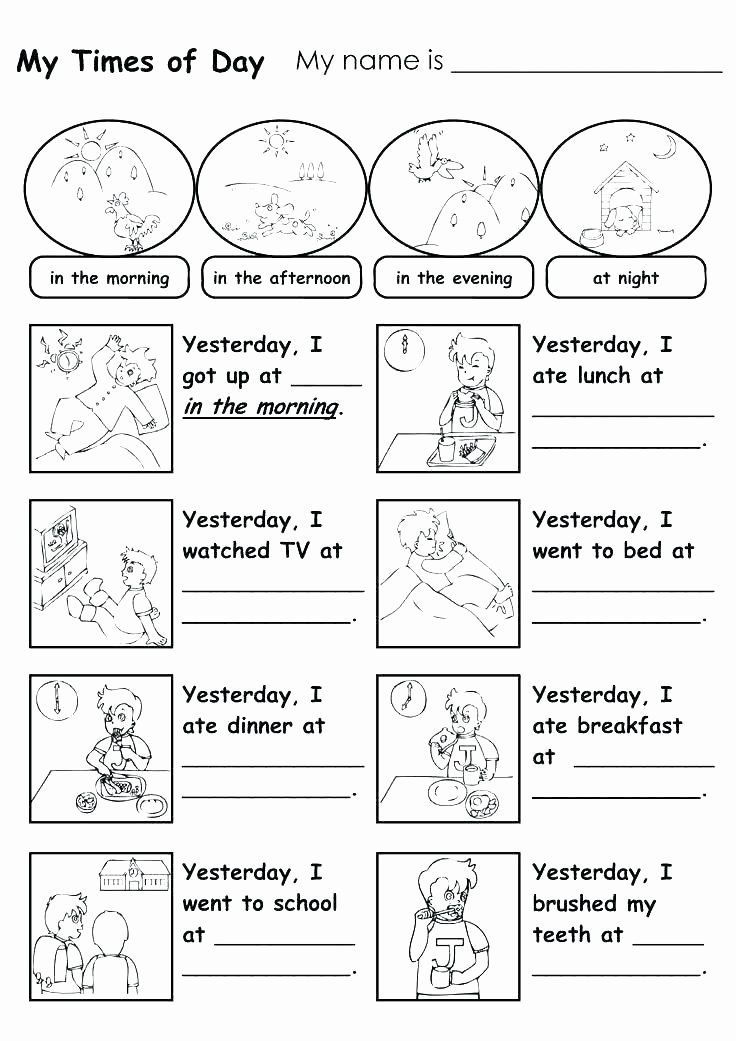 nine0005
nine0005
That's why in the morning - after a deep sleep - a person's well-being improves.
As a result, insomnia can turn into a chronic form, provoking the development of anxiety and depressive disorders.
Insomnia is often cited as one of the major risk factors for depression.
- What is the best time to go to bed?
- It is believed that the most useful sleep occurs from 11 p.m. to 2 a.m. It is during this period that the brain actively produces the hormone melatonin, which not only improves sleep, but also fights aging, normalizes blood pressure and generally improves health. nine0005
At dawn melatonin ceases to be produced. It is replaced with the first rays of the sun by the vigor hormone - serotonin. He is the one who wakes us up at dawn.
In this regard, people who go to bed after two in the morning often feel overwhelmed and sleepy, despite the fact that they have slept for at least seven hours. Therefore, those who fall asleep before 11 p.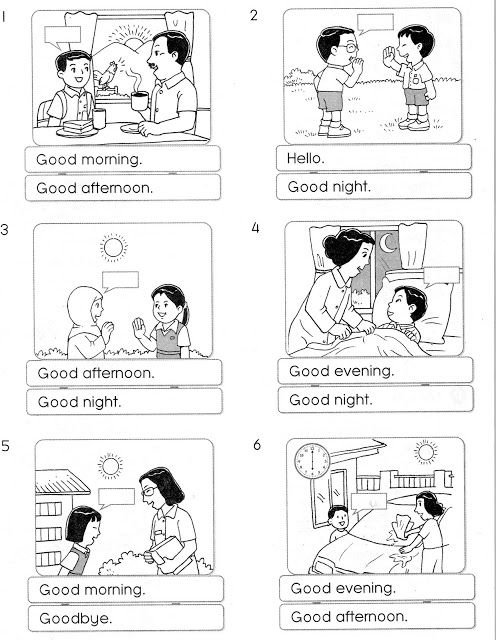 m. sleep better and feel better. This gives strength and allows you to achieve effective results in any activity. As the English say, "Early to bed and early to rise makes a man healthy, wealthy and wise". In the Russian version, this proverb sounds like this: "Who gets up early, God gives him." And scientific evidence proves that folk wisdom is not wrong. nine0005
m. sleep better and feel better. This gives strength and allows you to achieve effective results in any activity. As the English say, "Early to bed and early to rise makes a man healthy, wealthy and wise". In the Russian version, this proverb sounds like this: "Who gets up early, God gives him." And scientific evidence proves that folk wisdom is not wrong. nine0005
- How to restore the body if we do not get enough sleep or work at night?
- A long stay in nature allows a person to synchronize his biological clock with a sunny day and thus restore the level of melatonin in the body.
For those who cannot afford frequent trips to nature, it is recommended to spend more time in the sun during the morning and afternoon hours.
In some Mediterranean countries there is a tradition to relax in the afternoon - this is a siesta. However, not just a tradition, but a custom that is quite reasonable in terms of health benefits, the effectiveness of which has been scientifically proven. In the period from 13:00 to 15:00, a person's body temperature drops, activity drops sharply, and mood worsens. Especially in areas with a hot climate, where the peak of the heat falls precisely on this segment of the day. The productivity of work during these hours is extremely low, so the Spaniards or Italians prefer to take a break and take a nap for one or two hours. According to experts, this approach has a positive effect on both health and brain function, especially if a person did not get enough sleep at night. Daytime sleep helps to avoid emotional and physical overload, increase concentration and improve memory. nine0005
In the period from 13:00 to 15:00, a person's body temperature drops, activity drops sharply, and mood worsens. Especially in areas with a hot climate, where the peak of the heat falls precisely on this segment of the day. The productivity of work during these hours is extremely low, so the Spaniards or Italians prefer to take a break and take a nap for one or two hours. According to experts, this approach has a positive effect on both health and brain function, especially if a person did not get enough sleep at night. Daytime sleep helps to avoid emotional and physical overload, increase concentration and improve memory. nine0005
However, in order for a day's rest to be extremely beneficial, it is important to respect certain time frames. There are "correct" intervals - 30 minutes or 80-120 minutes. 25-30 minutes - restoring sleep, after which the deep sleep phase begins, lasting about 30-40 minutes. Waking up at this moment is painful and not only does not give the effect of restoring strength, but, on the contrary, leads to a decrease in working capacity.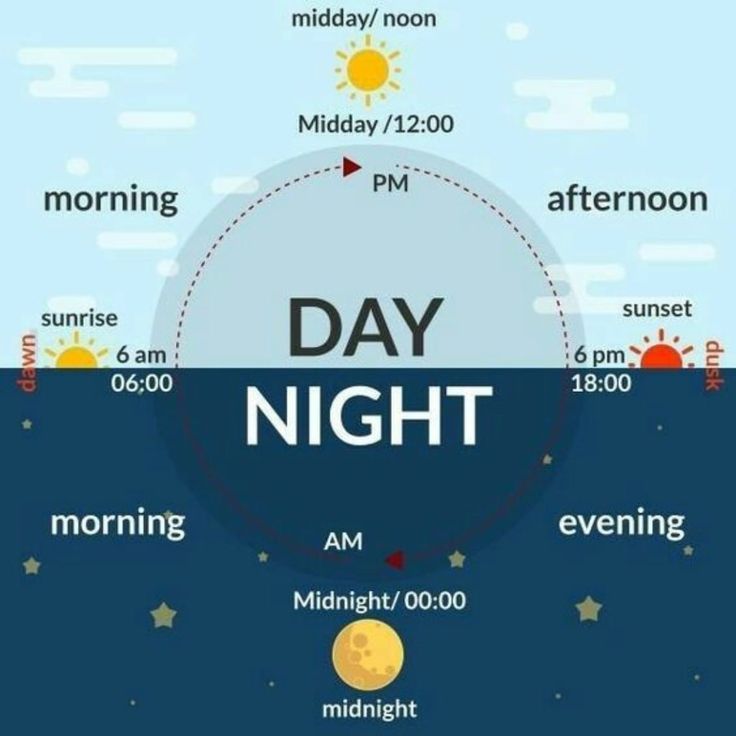 Therefore, during the day it is preferable to set an alarm clock either 20-25 minutes ahead, or no less than one and a half to two hours, when the deep sleep phase ends, and a person who wakes up after an hour and a half sleep feels a powerful surge of vigor. Moreover, it is believed that two hours of daytime sleep compensate for nighttime sleep deprivation. nine0005
Therefore, during the day it is preferable to set an alarm clock either 20-25 minutes ahead, or no less than one and a half to two hours, when the deep sleep phase ends, and a person who wakes up after an hour and a half sleep feels a powerful surge of vigor. Moreover, it is believed that two hours of daytime sleep compensate for nighttime sleep deprivation. nine0005
- How much sleep should a child, men and women need?
- Children need more sleep than adults. So, four-year-old children who sleep less than the norm (less than 11-12 hours) are more likely to suffer from various deviations in behavior, such as hyperactivity, impaired attention, aggression and anger.
Full sleep of women is the key to family happiness. If a woman constantly does not get enough sleep, then conflicts, quarrels and scandals at home are unlikely to be avoided. And, on the contrary, a woman who has had enough sleep radiates joy and contentment, creating a warm atmosphere of comfort and coziness at home. nine0005
nine0005
- How much sleep do you need at night to get enough sleep and have a good rest?
- People of a choleric temperament need six to seven hours of sleep to get enough sleep, and sanguine and phlegmatic people need to sleep at least eight to ten hours a day. However, regardless of temperament, before going to bed, everyone needs a kind of relaxation, an appropriate mood, which helps to move from the wakefulness stage to the stage of relaxation and sleep. So, for example, it is known that quarrels in the family negatively affect sleep, both for adults and children. nine0005
In order to get a good night's sleep, you should definitely ventilate the room before going to bed, you can sleep with the window open.
The temperature in the sleeping area should be around 16-18 degrees, not too cold, but not too hot.
It is necessary to choose a comfortable bed. First of all, the choice of a mattress and pillow, a mattress topper, which not only protects against pollution, but also absorbs moisture and improves hypoallergenic properties, is important. Sheets should be made of soft natural materials. They should be pleasant to the touch and of a comfortable design that does not allow the sheet to roll or wrinkle. nine0005
Sheets should be made of soft natural materials. They should be pleasant to the touch and of a comfortable design that does not allow the sheet to roll or wrinkle. nine0005
It is advisable to read a book before going to bed, listen to light, slow, relaxing music, as reading reduces stress levels by 68 percent, and quiet slow music by 61 percent.
Also, it is not necessary to sort things out with relatives in the evening. Postpone conversations that threaten nervous tension until the morning. Moreover, it is more likely that after the rest the problems will lose their relevance.
Causes of malaise, weakness and poor health
The human body is a complex self-regulating mechanism that can fight the disease for a long time without giving any alarm signals. The first call is a classic malaise. It is always accompanied by muscle weakness (in the arms and legs or throughout the body), drowsiness, extreme fatigue, as well as morning sickness, dizziness and loss of strength.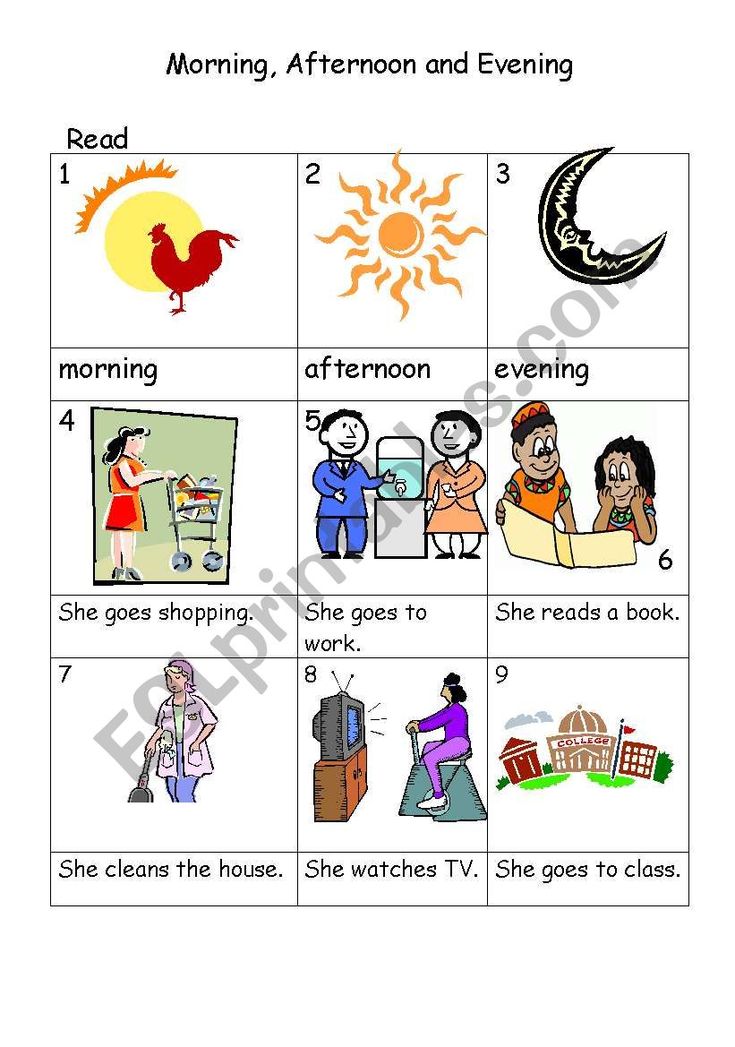 These symptoms may be the beginning of a serious illness, so it is important not to delay and get to the doctor as soon as possible, get tested and undergo a full examination. nine0005
These symptoms may be the beginning of a serious illness, so it is important not to delay and get to the doctor as soon as possible, get tested and undergo a full examination. nine0005
There are many reasons for disease states that in adults begin with a simple malaise. Among the most common:
- ARI (acute respiratory disease) and SARS (acute respiratory viral infection or influenza). On their eve, a person feels completely exhausted - he doesn’t seem to be sick, but he wants to lie down and sleep for days.
- Severe internal pathologies . Problems with the liver, kidneys, heart do not always begin with an acute process. Listen to the body, it is likely that it will give some other sign in the form of a specific symptom. But do not self-medicate - it is life-threatening. nine0098
- Intoxication . The first symptom of food poisoning is weakness and nausea, diarrhea. Review what you ate the night before.
 If the following symptoms are confirmed, you need to contact a specialist doctor - therapist.
If the following symptoms are confirmed, you need to contact a specialist doctor - therapist. - Menopause in women . Changes in hormonal levels due to aging are often accompanied by lethargy, weakness, apathy, hot flashes and tearfulness. Visit your doctor and discuss the condition with him.
- Age changes. In the elderly, malaise may be related to age. If a person was previously healthy and active, you should be alert and undergo an examination.
- Constant stress eventually leads to chronic fatigue syndrome. The patient, even after sleeping for 8 hours, feels overwhelmed, "as if a skating rink had passed over him." It is necessary to trace the beginning of the onset of the pathological condition. If it is really associated with stress, the help of a psychotherapist will not hurt. nine0098
- Thyroid problems - hypothyroidism. Lack of hormones adversely affects the body. The patient feels weakness, drowsiness.
 At the same time, weight gain, lethargy, low blood pressure (blood pressure) are observed.
At the same time, weight gain, lethargy, low blood pressure (blood pressure) are observed. - B12 deficiency anemia . If this vitamin is not enough, the rate of oxygen transport to the tissues decreases. The result is a lack of energy, lethargy, drowsiness.
These are far from all pathologies that begin with weakness and general malaise. nine0005
Diagnosis
Do not try to figure out the cause of your condition yourself. Remember, any delay in the event of a serious pathology threatens with irreversible consequences. Our multidisciplinary center has advanced equipment that allows the use of such modern methods of diagnosis and treatment as:
- 24-hour Holter ECG and blood pressure monitoring;
- laser therapy;
- functional diagnostics,
- endoscopy,
- electrical impedance computed mammography (MEIC),
- ultrasound diagnostics,
- laboratory tests from INVITRO.

An experienced therapist will take an anamnesis and refer you to the Comprehensive Express Examination "Check-up".
The quality of diagnosis and the effectiveness of subsequent treatment is enhanced by the fact that the express examination is carried out during the day under the supervision of your personal therapist. Upon repeated admission, you will receive full results of laboratory tests and the conclusion of a general practitioner about the state of health. nine0005
General recommendations for improvement
If the examination does not show the presence of a serious pathology, then the cause lies in fatigue or stress. In this case, there is an opportunity to help yourself on your own:
- Normalize your work and rest schedule.
- Spend more time outdoors.
- Avoid cigarettes, alcohol, sugary carbonated drinks.
- Sign up for a gym, aerobics, yoga, whatever, just move more. nine0098
- Eliminate fast food from your diet.

